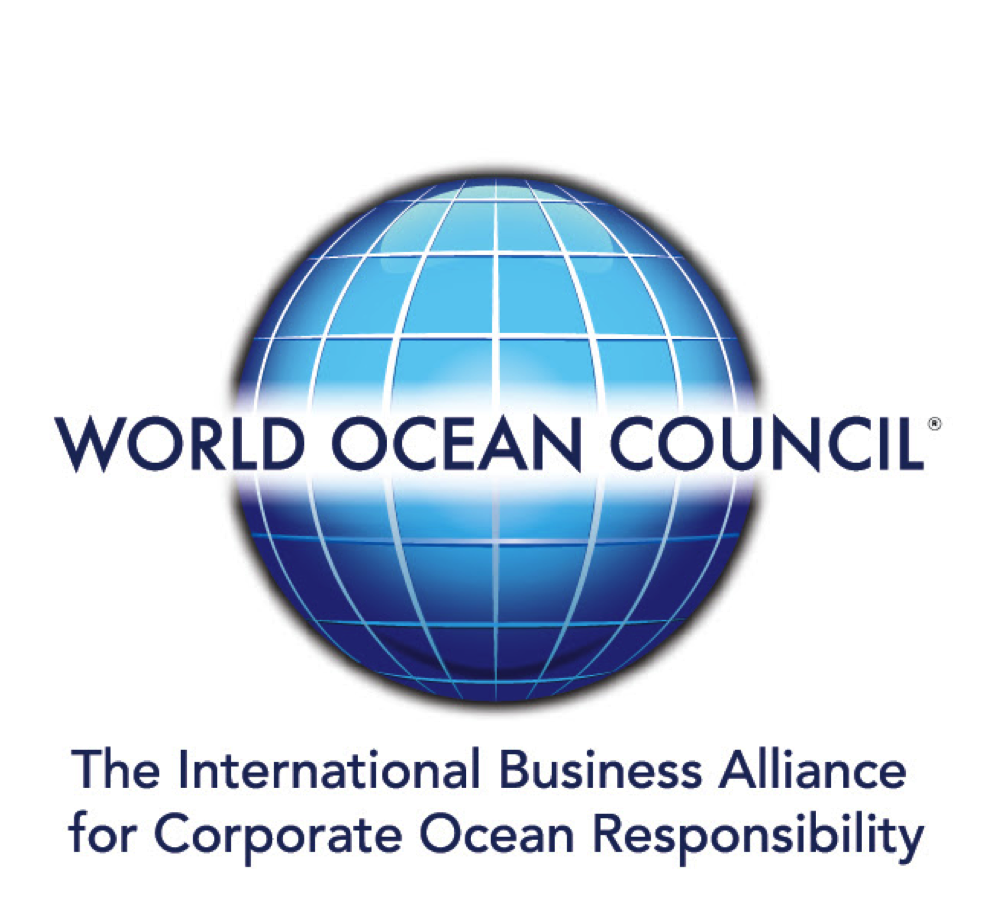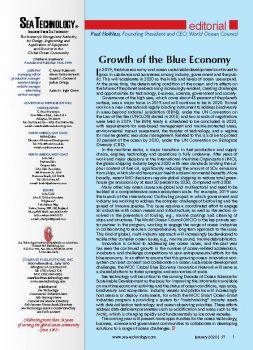Click here to access the original editorial in Sea Technology.
2020 Sea Technology 2020 – Holthus op-edSea Technology (January 2020) featured an opening editorial by WOC Founding President and CEO Paul Holthus.
Growth of the Blue Economy
In 2019, the blue economy and ocean sustainable development continued to grow in substance and awareness among industry, government and the public. This will accelerate in 2020 as the kinds and levels of ocean use expand. At the same time, the deteriorating condition of the ocean and its effects on the future of the planet are becoming increasingly evident, creating challenges and opportunities for technology, business, science, government and society.
Governance of the high seas, which cover about 45 percent of the planet’s surface, was a major focus in 2019 and will continue to be in 2020. Formal work on a new international legally binding instrument to address biodiversity in areas beyond national jurisdiction (BBNJ), under the UN Convention on the Law of the Sea (UNCLOS) started in 2018, and two rounds of negotiations were held in 2019. The BBNJ treaty is scheduled to be concluded in 2020, with requirements for area-based management and marine protected areas, environmental impact assessment, the transfer of technology, and a regime for marine genetic resources management. Related to this is a drive to protect 30 percent of the ocean by 2030, under the UN Convention on Biological Diversity (CBD).
In the maritime sector, a major transition in fuel production and supply chains, engines, technology and operations is fully underway. After years of work and major decisions at the International Maritime Organization (IMO), the global shipping industry begins 2020 with new standards limiting the sulphur content of fuel oil, significantly reducing the amount of SOx emissions from ships, which should have major health and environmental benefits. More broadly, recent IMO decisions require global shipping to reduce total greenhouse gas emissions by at least 50 percent by 2050, compared with 2008.
Many other key ocean issues are global and multisectoral and need to be tackled at a comprehensive ocean-ecosystem scale. For example, 2019 saw the launch of the international GloFouling project in which government and industry are working to address the complex challenge of biofouling and the spread of invasive species. This issue requires a coordinated effort to engage all industries with ocean vessels and infrastructure, as well as the sectors involved in the prevention of fouling, e.g., marine coatings and cleaning of ships and structures. The World Ocean Council (WOC) is the key private sector partner in the program, working to engage the range of ocean industries in collaborating to ensure a comprehensive, long-term approach to the issue. This kind of global, multi-industry approach will increasingly be developed to tackle other complex ocean issues, e.g., marine sound, marine debris/plastics.
Innovation is critical to addressing key ocean issues, and the past year has seen the continued growth in the number of ocean-related accelerators, incubators and challenge competitions to spur entrepreneurial efforts for the blue economy. In an effort to ensure that this growing ocean-innovation ecosystem can best connect and collaborate on ocean sustainable development challenges, the WOC Global Blue Economy Innovation Network will serve as a shared platform to foster synergies and economies of scale.
Sea technology will be critical to the coming Decade of Ocean Science for Sustainable Development as the basis for improving the information available on maritime economic activities and the status of ocean conditions, resources, biodiversity and ecosystems. Industry vessels and platforms will increasingly host sensors or deploy instruments, for which the WOC Smart Ocean-Smart Industries program is providing a system for “matchmaking” industry assets with data-collection technology and ocean-observing priorities. These efforts address data-deficient parameters such as acidification and areas such as the Arctic, which is changing rapidly and fundamentally as ice cover recedes.
The coming year will present more opportunities for the ocean technology, business, science and government communities to collaborate in developing solutions to a range of ocean challenges.
– Paul Holthus, Founding President and CEO, World Ocean Council


